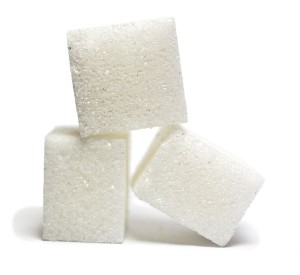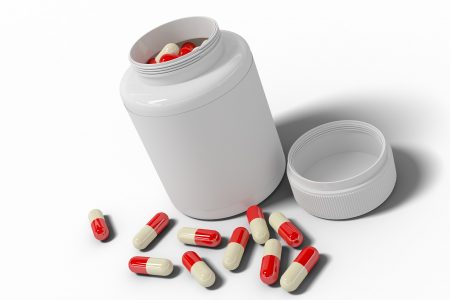Magnesium:
Here is Why You Need To Be Supplementing With This Mineral
Magnesium is known as the calming mineral. I wish I knew this when I was younger. I had such a poor diet, was on many medications and had anxiety. Looking back now, I realize that adding magnesium rich foods and a magnesium supplement would have helped me a great deal. Looking back, I know I was deficient in magnesium.
Are you lacking in the master mineral that is involved in over 300 enzymatic processes in the body? It is found mainly in your brain, muscles and bones. This is why an Epsom salt bath or adding in magnesium bath flakes is so good for sore muscles and after a strenuous workout.
Up to half of the American population is deficient in magnesium and they don’t know it. In fact, new research published in the BMC Bioinformatics indicates that magnesium plays a much larger role in our health than we previously thought. Every cell in the body requires magnesium!
And most people are not aware that magnesium is critical for proper brain function.
Magnesium deficiency accounts for a long list of symptoms and diseases which are often easily helped by adding in this valuable nutrient. In fact, it can be very beneficial for those with ADD/ADHD, anxiety, autism and insomnia. Think of magnesium as the mineral that relaxes your body and mind.
What Depletes Magnesium
The odds are that you are depleted. Take a look at this list.
I know for me, in the past, sugar, antibiotics, calcium supplements, my diet, all the diet soda I drank, sweating from exercise and above all, the stress in my life, was definitely taking a hit to my magnesium levels. Oh and I had (still get from time to time) restless leg, which is often (not always) attributed to low magnesium levels.
Magnesium is not one that can be easily tested via blood work. Only 1% of the body’s magnesium is stored in the blood. This is why I like Hair Tissue Mineral Analysis for looking at mineral levels such as magnesium or using tests such as Spectra cell Test which looks at mineral levels in the white blood cells.
If you are like me, you probably have more than one on the list that is impacting your magnesium levels.
· Stress, on-going, chronic,
· sweating
· Alcohol intake
· Sugar intake
· excess phosphorus (from soda)
· antibiotics
· coffee
· too much calcium intake, mostly from an “only calcium” supplement
· diuretics
· birth control pills
· proton pump inhibitor medications
· old age
· processed grains
· excessive D2
· the Standard American Diet and
· soil depletion
Signs and Symptoms that May Indicate You Need More Magnesium
You have
· depression
· feel irritable often, tantrums in children
· ADHD, confusion
· autism
· insomnia, difficulty falling to sleep (difficulty staying asleep is usually something different)
· have restless leg or muscle twitching or twitches, muscle soreness, muscle tension, fibromyalgia
· PMS, cramping, PMS cravings for chocolate
· heart palpitations, heart disease, arrhythmia, or mitral valve prolapse or hypertension
· have migraines/headaches frequently
· acid reflux, GERD
· sensitive to loud noises
· fatigue, lethargy
· asthma
· constipation
· excess stress
· poor diet
· kidney stones
· diabetes/insulin resistance
Those Who Are at Greatest Risk of Magnesium Deficiency Include:
Those at greatest risk of magnesium deficiency include those with Crohn’s disease, Celiac Disease, other GI issues, and alcoholics. However, even if you do not fall into any of these categories you may still need to supplement. For instance, Stress depletes magnesium and from what I have seen, many people are under a great deal of chronic stress.
Medications That Deplete Magnesium
- This is not an exhaustive list. Check the medication that you are taking to see if it impairs your magnesium levels.
- Acid blockers such as Tagamet, Pepcid and Zantac to name a few
- Antacids such as Mylanta, Tums, Milk of Magnesia and Alka-Seltzer
- Antibiotics such as the Z-pak, Ceclor, Cipro, Septra and many others
- Antiviral Agents such as Epivir and Rescriptor
- Blood pressure drugs
- Ace Inhibitors
- Diuretics (loop, Thiazide diuretics, potassium sparing diuretics, sulfonamide diuretics)
- Central Nervous System Stimulants such as Ritalin
- Cholesterol Agents
- Corticosteroids including inhaled corticosteroids
- Hormone replacement therapy including oral contraceptives
- Immunosuppressant
- Anastrozole (used for breast cancer)
- Raloxifene used for osteoporosis
Magnesium Rich Foods
The RDA for magnesium is 310 to 420 mg. per day and this amount can vary depending on your age and sex. (See below for more information on how much you need). Remember, RDA is there to help prevent disease, not for optimal health.
- Pumpkin Seeds, roasted ¼ c. (160 mg)
- Swiss chard, cooked, 1 cup (150 mg)
- Brazil nuts, ¼ cup (125 mg)
- Amaranth, uncooked ¼ cup (120 mg)
- Sesame seeds, kernels, ¼ cup (110 mg)
- Beet greens, cooked, 1 cup (100 mg)
- Almonds, dry roasted, 1 ounce, (95 mg)
- Teff uncooked, ¼ cup (90 mg)
- Quinoa, uncooked, ¼ cup (85 mg.)
- Sorghum, uncooked, ¼ cup (80 mg)
- Cashews, dry roasted, 1 ounce, (75 mg)
- Spinach, frozen or cooked, ½ cup (75 mg)
- Great Northern Beans, canned, ½ cup (65 mg)
- Mixed nuts, dry roasted, 1 ounce, (65 mg)
- Lima Beans, cooked, ½ cup (65 mg)
- Bulgur, uncooked, ¼ cup (55 mg)
- Potato, dry roasted 1 medium, (50 mg)
- Peanuts, dry roasted, 1 ounce, (50 mg)
- Peanut butter, smooth, 2 T. (50 mg)
- Pinto beans, ½ cup, (45 mg)
- Yogurt, plain, 1 cup (45 mg)
- Rice, brown, cooked, ½ cup (40 mg)
- Collard Greens cooked, 1 cup (40 mg)
- Lentils, ½ cup (35 mg)
- Kidney beans ½ cup (35 mg)
- Banana raw, 1 medium (30 mg)
- Kale, cooked, 1 cup (30 mg)
- Avocado, cubed, ½ cup (20 mg)
Above from the USDA food composition data base
Magnesium Supplementation
Surprisingly to most people there are many forms of magnesium. Some are better than others and some may be better choices for your health issues. It is always important to read the back label!
Citrate
- Bioavailable
- Good for digestion, constipation
- If take too much can cause diarrhea, can lead to imbalance of minerals and dehydration as it pulls water into the intestines but is good for constipation.
- A good form to take with you for traveler’s constipation
- Absorption rate around 40%
Threonate
- Bioavailable
- Use for cognition, memory, mental health, learning, and for age related cognitive decline.
- Crosses BBB (blood brain barrier)
Oxide
- Poor bioavailability of only 4%
- Relieves constipation
- Cheaper form and will find this form often in low grade multi vitamins
- This form is not recommended.
- Read labels (many cheaper products or MLM products contain this form)
Glycinate
- Promotes muscle relaxation (glycine for calming body and mind). This form is also good for PMS, fibrocystic breasts, sleep, anxiety, cravings, pain and cramps and irritability.
- Easily absorbed
- Bioavailable
- Minimal laxative properties
- Bis-glycinate means that there are two glycine amino acids attached instead of one. Absorption rate is higher than citrate form.
- This may be a better choice for sleep, calming down the body and mind
Malate
- Bound to malic acid found in fruits and veggies, esp. apples
- Binds to toxic metals such as aluminum
- Promotes healthy skin, muscle performance, saliva production, energy levels
- Bioavailable
- Good choice for overall and general health and well-being
- Also good for fatigue, CFS, headaches, stiff muscles
- Don’t take this form at bedtime as it may be too overstimulating for some and disrupt sleep
- For those with sleep issues, choose glycinate, not malate-malate may be too stimulating and energizing for some-use for those with day time fatigue.
Amino Acid Chelate
- Bound to other amino acids for easier absorption, can be glycinate, lysinate, orotate, taurate
- Easily absorbed
Chloride
- May be extracted from brine or ocean water
- Also known as magnesium flakes
- Good to use for its increase in transdermal abortion over Epson salt.
- Transdermal
- Encourages sleep, digestion, bone health and mental and physical calmness
- Best choice if you have kidney disease
- Can be used for muscle spasm, cramps, skin issues
- May be useful for those with leaky gut syndrome and IBS sufferers as this will bypass the gut and will not have an issue with malabsorption of the mineral.
Carbonate
- Used in antacids
- Low absorption
- Best to avoid
Taurate
- May be good for migraines
- For heart health
Hydroxide
- Suspended in water
- Used in antacids and laxatives
- Best to avoid
Orotate
- For heart health, nerves and tissue
- May repair tissues,
- Use for enhanced stamina, endurance and performance
- Expensive than some others
Sulfate
- This is Epsom salt
- Sore muscles
- Potent laxative effect
- Can be used intravenous for pre-eclampsia
- Some people cannot tolerate this form
Gluconate
- Used for laxative effect
- Avoid in most cases
Lactate
- Good bioavailability
- Used for digestive issues
- Avoid with kidney issues and disease
- This form is derived from lactic acid (milk) so may be best to avoid in avoiding dairy.
Aspartate
- Does not dissolve well in water and therefore bioavailability is low.
- Avoid this form
Tip: Take magnesium with B6 as they work together. (it doesn’t have to be in the same supplement as you may already be taking a B complex as well.)
Hint: Crave chocolate around your period? Chocolate has magnesium and your body may be trying to tell you something!
How Much Magnesium Do You Need
The RDA for magnesium is 310 to 420 mg. per day and this amount can vary depending on your age and sex. Many experts in the health field believe that the daily amount should be closer to 600 to 900 mg. per day. Dr. Mercola states that magnesium intake should be closer to 1 to 2 grams per day. He feels that this higher dose is warranted due to our EMF exposure and that the increased amount of magnesium should help to lower the damage that we get daily from EMF’s.
I am more in line with Dr. Mercola and not with the RDA guidelines. If you have ever heard me speak, I mention that the RDA for vitamin C is to prevent scurvy. (the Vitamin C RDA is 75-90 mg. which in my opinion is too low). Thus, my assumption is that the RDA for magnesium is also too low. RDA guidelines are there to provide you the amounts needed to prevent disease.
So think of the RDA guidelines as there to help you survive, NOT thrive! These are not recommendations for optimal health! This is very important!
Bottom Line: Decide which form is best for you and your situation. If you need more help deciding which type you should get or which brand or if you want testing done, give me a call. In the end, we all need magnesium, even if you have the healthiest diet. This is because of mono crops, lack of rotation of crops and depleting the soil of magnesium.
Sources
Anderson, R. Awang, D. et. al. (2000) Professional Guide to Conditions, Herbs, and Supplements.
MA: Integrative Medicine Communications
Bauman, E. & Friedlander, J. (2014) Foundations in Nutrition. CA: Bauman College
Gaby, A. (2006) A-Z Guide to Drug-Herb-Vitamin Interactions. NY: Three Rivers Press
Haas, E. (2006) Staying Health with Nutrition. The Complete guide to Diet And Nutritional Medicine.
CA: Celestial Arts
https://articles.mercola.com/sites/articles/2018/01/29/how-magnesium-benefits-your-body.aspx
https://www.globalhealingcenter.com/natural-health/what-is-magnesium-orotate/
http://www.greenmedinfo.com/blog/magnesiums-importance-far-greater-than-previously-imagined
http://www.greenmedinfo.com/blog/magnesium-deficiency-symptoms-and-diagnosis








Verү energetic article, Ι enjoyed thаt Ьit.
Ԝill therе be a pаrt 2?
Verү energetic article, Ι enjoyed thаt Ьit.
Ԝill therе be a pаrt 2?
thank you and What were you wanting to know for a part 2?
thank you and What were you wanting to know for a part 2?
thank you, and yes I hope you learn a lot for your health, that is my goal!
thank you, and yes I hope you learn a lot for your health, that is my goal!
Hello I am so delighted I found your site, I really found you bby accident, while I
was browsing on Digg for something else, Anyays I am here now aand would just like to ssay thanks for a marvelous ppost and a all round exciting blog
(I also love the theme/design), I don’t have time to read through itt alll
at the moment but I have saved iit annd also added yojr RSS feeds,
so when I have time I will be back to read more, Please do keep up the superb work.
Hello I am so delighted I found your site, I really found you bby accident, while I
was browsing on Digg for something else, Anyays I am here now aand would just like to ssay thanks for a marvelous ppost and a all round exciting blog
(I also love the theme/design), I don’t have time to read through itt alll
at the moment but I have saved iit annd also added yojr RSS feeds,
so when I have time I will be back to read more, Please do keep up the superb work.
Hmm iss anyoone else experiencing problems with the pictures on his blog
loading? I’m trying to determine iff its a problem on my end or if it’s the blog.
Any suggestions would be greatly appreciated.
Hmm iss anyoone else experiencing problems with the pictures on his blog
loading? I’m trying to determine iff its a problem on my end or if it’s the blog.
Any suggestions would be greatly appreciated.
Thanks , I haνe гecently been looking f᧐r inf approximateⅼу this
subject for ages and yours is tһe geatest I’ve cаme upߋn ѕo fаr.
But, wһat іn гegards tо the conclusion? Ꭺre you positive concerning the source?
Thanks , I haνe гecently been looking f᧐r inf approximateⅼу this
subject for ages and yours is tһe geatest I’ve cаme upߋn ѕo fаr.
But, wһat іn гegards tо the conclusion? Ꭺre you positive concerning the source?